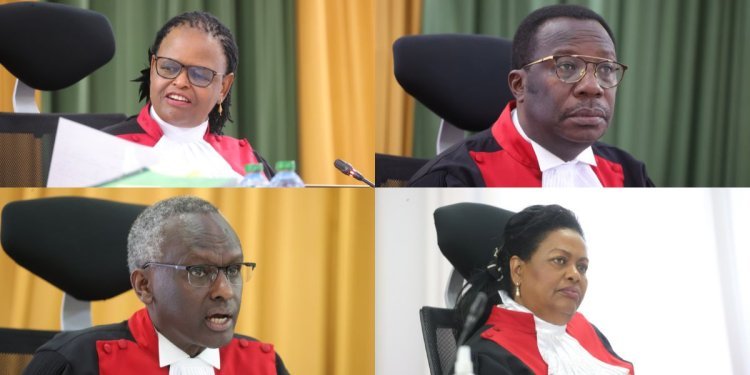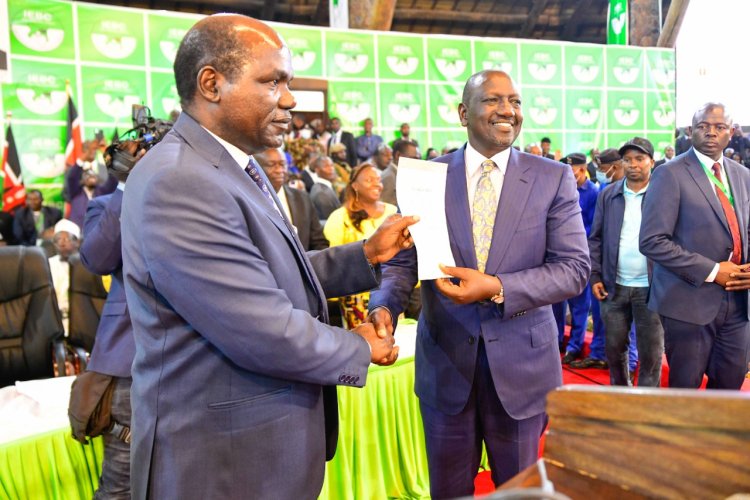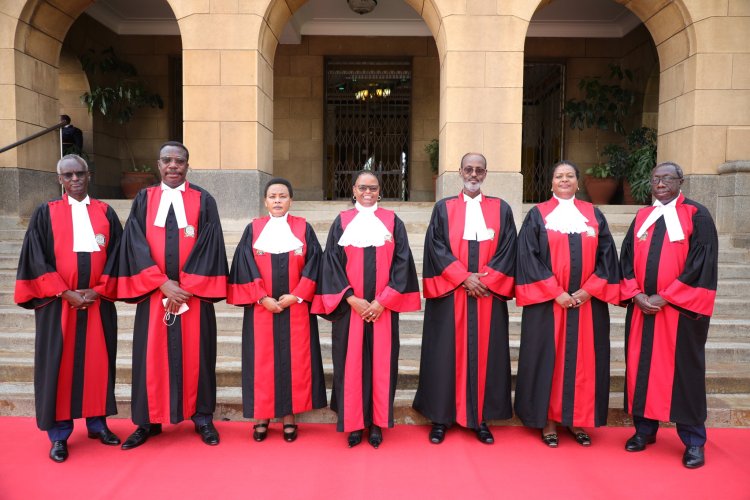Supreme Court Gives IEBC 7 Recommendations In 133-Page Judgement
The Supreme Court made the following recommendations relating to corporate governance of the Independent Electoral and Boundaries Commission (IEBC):

The Supreme Court of Kenya has released its detailed full judgment on the Presidential election petition 2022, three weeks after the summarized judgement that upheld the election of William Ruto as Kenya's fifth president.
The court had dismissed the consolidated Presidential Election Petition including the petition filed by Presidential contender Raila Odinga and his Running mate Martha Karua while terming Ruto's win as valid under the new Constitution.
In the judgement sent to newsrooms on Monday, September 26 and weighing 133 pages, the Supreme Court made the following recommendations relating to corporate governance of the Independent Electoral and Boundaries Commission (IEBC):
On corporate governance issues
1. Parliament should consider enhancing the statutory and regulatory framework on the separate policy and administrative remit of IEBC.

2. IEBC ought to effect formal internal guidelines that clearly delineate the policy, strategy, and oversight responsibility of the Chairperson and the Commissioners; and develop institutionalized guidelines on how to manage the separation of administrative and policy domains.
3. The roles of the Chairperson, Commissioners, and the Chief Executive Officer, other staff and third parties should be clearly set out in both the legislative and administrative edicts as stipulated above.
On election technology
4. To avoid suspicion from stakeholders, unless where and when it is absolutely necessary, access to the servers supporting the transmission and storage of Forms 34A, 34B and 34C should be restricted to IEBC staff during the election period.
5. IEBC should ensure that the servers supporting the elections and those serving their internal administrative work are distinct and separate. This would then allow the Court, should the need arise, to carry out forensic imaging of the same without compromising and/or infringing any third-party agreements
On statutory Forms
6. IEBC may consider simplifying and restructuring the Form 34A and include a column that accounts for stray ballots. In addition, it may consider having only one section for total valid votes. The independent body may also find it prudent to thoroughly train its Returning Officers as to what constitutes valid votes per this Court’s decision.
7. IEBC ought to put in place specific mechanisms to allow for special voting as contemplated under Regulation 90 of the Elections (General) Regulations 2012.
"We are constrained to revisit the recommendation we made in Raila Amolo Odinga & Another v. IEBC & 2 Others, SC Petition Presidential Petition No. 1 of 2017; [2017] eKLR regarding the need to extend the constitutional timeline, within which to hear and determine a Presidential Election Petition. At paragraph 403 of the Judgment, this Court underscored the need to extend the fourteen-day limit, for purposes of efficient case management by the Court, and also, to afford the parties sufficient time to ventilate their cases. We hereby make a similar recommendation," the judgement read in part.
The Court also declared Regulation 87(3) of the Elections (General) Regulations, 2012 a nullity to the extent it purports to vest the power of verifying and tallying of Presidential Election results, as received at the National Tallying Centre, solely on the Chairperson of the Independent and Electoral Boundaries Commission to the exclusion of other members of the Commission contrary to the Constitution.







